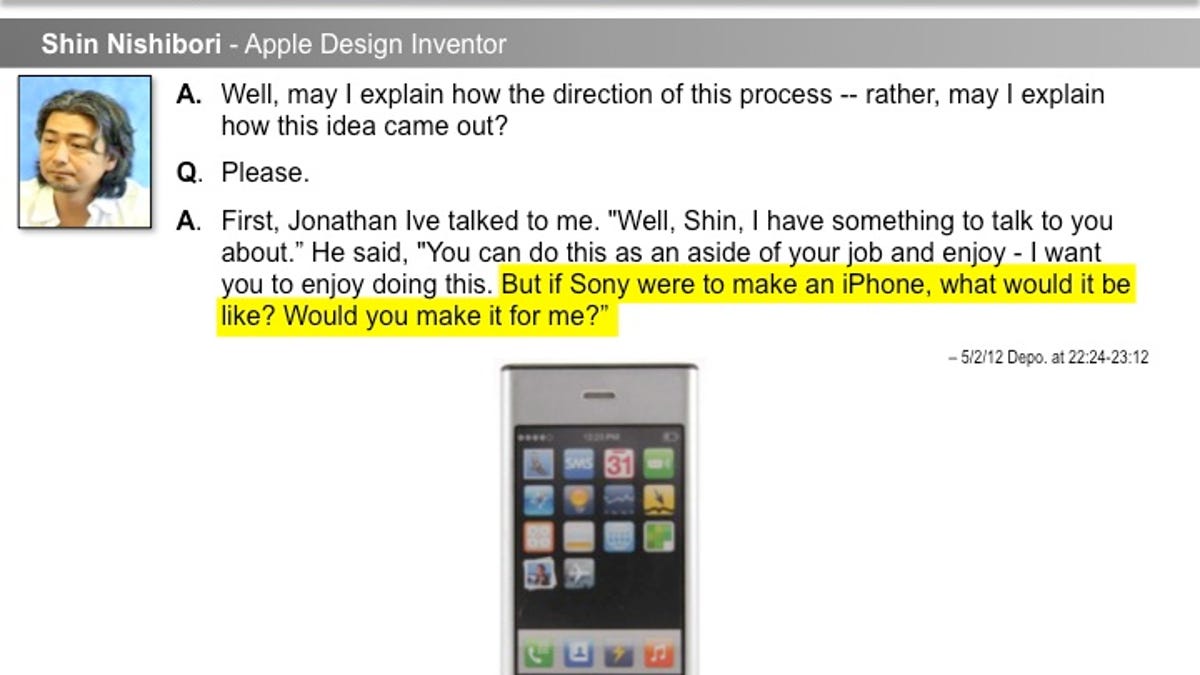Judge chides Samsung for handing nixed evidence to media
In Apple patent tussle, Samsung releases disallowed evidence to the press. Judge Lucy Koh is not amused.

The lawsuit between two of the world's biggest phone makers continues, with Samsung pushing excluded evidence outside of the courtroom and into the public -- and getting a wrist-slap for it.
Following the testimony of Apple Senior VP Phil Schiller, Apple's counsel pointed out to Judge Lucy Koh that Samsung had leaked excluded evidence and a statement to the media.
Koh, audibly irritated, told Samsung to file a brief explaining who drafted the statement, as well as who from Samsung's legal team authorized it.
In an e-mail sent earlier today, Samsung said it would have presented evidence today that Sony's designs predate Apple's ideas for the iPhone, but a judge denied the company's request.
In response, the South Korean manufacturer has decided to release its evidence to the media: two slides showing Samsung phone designs and an excerpt from the deposition of former Apple designer Shin Nishibori, who said previously that he would not testify in court.
A Samsung representative issued this statement along with the slides:
The Judge's exclusion of evidence on independent creation meant that even though Apple was allowed to inaccurately argue to the jury that the F700 was an iPhone copy, Samsung was not allowed to tell the jury the full story and show the pre-iPhone design for that and other phones that were in development at Samsung in 2006, before the iPhone. The excluded evidence would have established beyond doubt that Samsung did not copy the iPhone design. Fundamental fairness requires that the jury decide the case based on all the evidence.
Apple's counsel argued that the published evidence and the official statement might be seen by jurors, who are supposed to make decisions based only on the evidence presented in court.
Update, 5:18 p.m. PT: adds Apple's remark about jurors potentially seeing the published information.
CNET's Josh Lowensohn contributed to this report.

